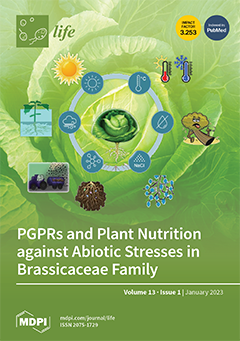Aflatoxin B
1 (AFB
1) is a common mycotoxin contaminant in cereals that causes severe economic losses and serious risks to the health of humans and animals. In this paper, we investigated the characteristics of AFB
1 degradation by black soldier fly
[...] Read more.
Aflatoxin B
1 (AFB
1) is a common mycotoxin contaminant in cereals that causes severe economic losses and serious risks to the health of humans and animals. In this paper, we investigated the characteristics of AFB
1 degradation by black soldier fly larvae (BSFL) combined with commensal intestinal microorganisms. Germ-free BSFL and non-sterile BSFL were reared on peanut meal spiked with AFB
1 for 10 days. The result showed that germ-free BSFL and non-sterile BSFL could achieve 31.71% and 88.72% AFB
1 degradation, respectively, which indicated the important role of larvae gut microbiota in AFB
1 degradation. Furthermore, twenty-five AFB
1-degrading bacteria were isolated from BSFL gut, and
S. acidaminiphila A2 achieved the highest AFB
1 degradation, by 94%. When
S. acidaminiphila A2 was re-inoculated to BSFL, the detrimental effect of AFB
1 on the growth performance of BSFL was alleviated, and complete AFB
1 degradation in peanut meal was obtained. In conclusion, the present study may provide a strategy to degrade AFB
1 in feedstuff through bioconversion with BSFL in combination with gut-originated AFB
1-degrading bacteria, while providing a sustainable insect protein and fat source to animals.
Full article






